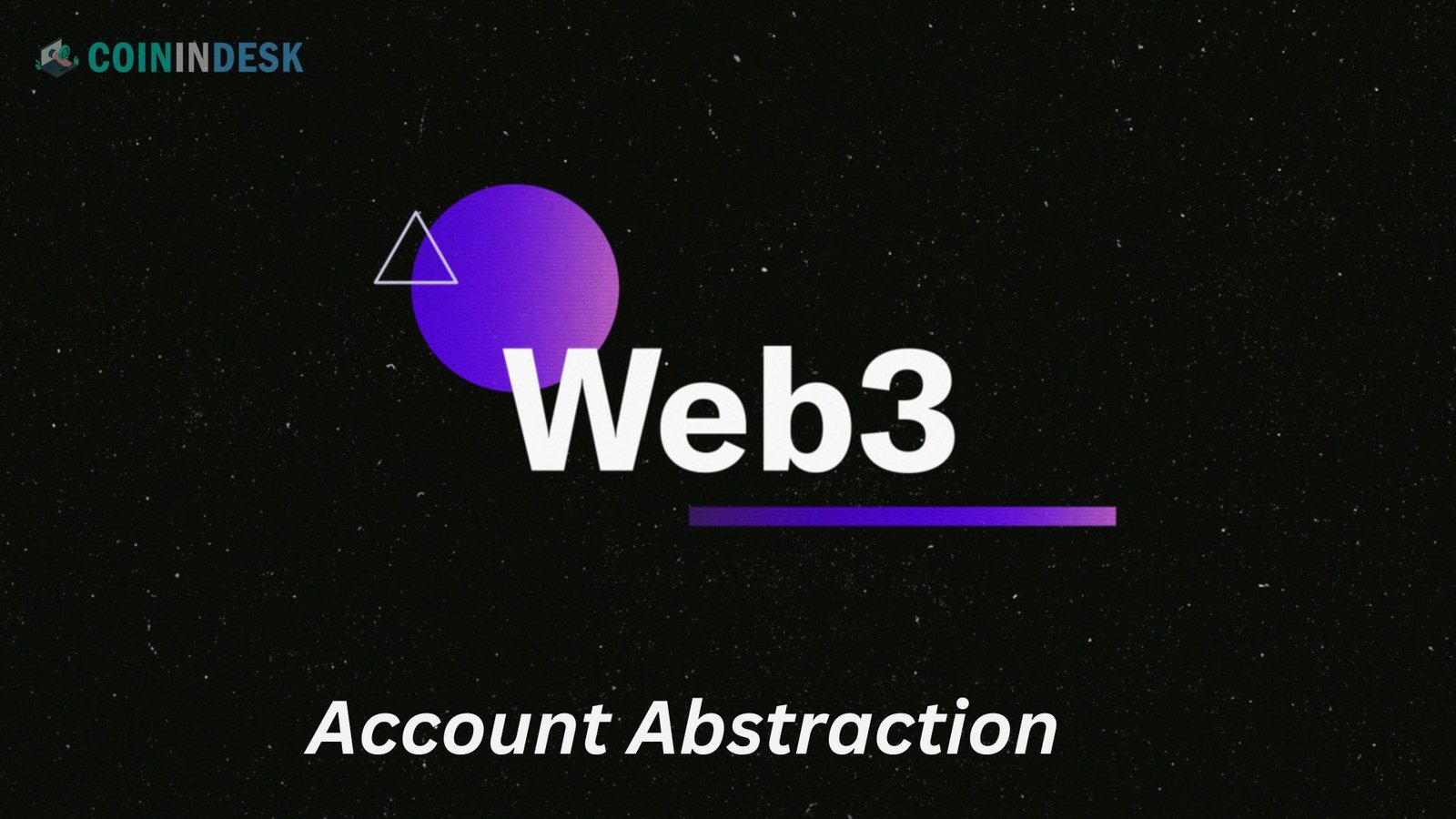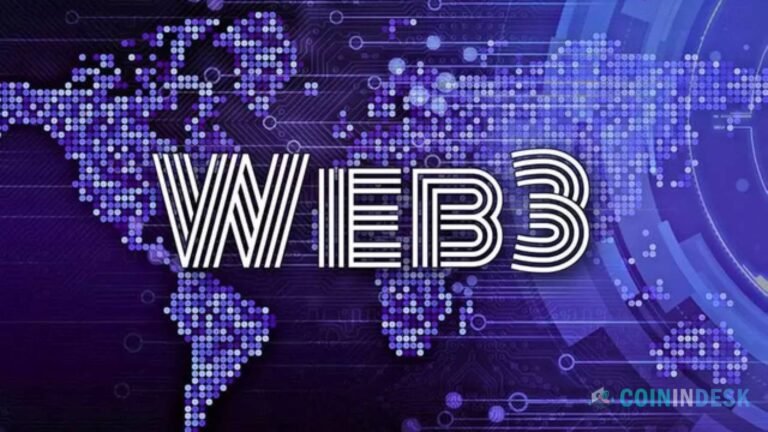Web3 has come out as a game-changer in the ever-changing blockchain environment, offering a decentralized and user-controlled internet. The idea of account abstraction in Web3 is among the most ground-breaking developments in this field. This technology streamlines interactions, which greatly improves the user experience and boosts the functionality of blockchain apps. First, define account abstraction; second, explain its significance.
Separating the logic of user accounts from the underlying blockchain enables more configurable and flexible interactions in Web3, a technique known as account abstraction. It might pave the way for a more inclusive and user-friendly blockchain experience by simplifying users’ interactions with decentralized apps (dApps).
What is Account Abstraction in Web3?
By essentially letting smart contracts function as user accounts, account abstraction aims to revolutionize user interaction with blockchain networks. Cryptographic private keys regulate user accounts in conventional blockchain networks and allow users to engage directly with the network. However, this concept might be difficult to understand and apply for people who aren’t technically savvy.
Smart contracts may be used by users to manage their accounts through account abstraction, enabling more flexible and programmable interactions. This change streamlines a lot of blockchain interactions, such as controlling gas fees, dealing with different kinds of transactions, and making the network more secure.
How Does Account Abstraction Work?
Two kinds of accounts exist in the conventional blockchain model: EOAs, or externally owned accounts, and CAs, or contract accounts. CAs are blockchain-deployed smart contracts, whereas EOAs are private key-controlled. There is less leeway and more user friction because only EOAs may start transactions at the moment.
By empowering CAs to initiate transactions and transforming smart contracts into user accounts, account abstraction seeks to rectify this. Users are now relieved of the burden of handling private keys and complicated procedures independently, thanks to this update. Instead, features like multi-signature authentication, transaction batching, and fee delegation may be encoded into smart contracts.
Benefits of Account Abstraction in Web3
Simplified User Experience
The enhancement of the user experience is a major advantage of account abstraction. Blockchain interactions are made far more accessible by eliminating the requirement for consumers to handle private keys manually. This is of the utmost importance when bringing on new users since they can be overwhelmed by the complexity of the present system. The blockchain is made as easy to use as any other program when accounts are abstracted.
For example, with fee delegation, users can engage with a blockchain without personally paying gas fees; instead, sponsors or other mechanisms do this. The importance of frictionless interactions in Web3 games and social media apps makes this feature very useful for retaining users.
Enhanced Security and Flexibility
Additionally, account abstraction enhances security by providing more advanced choices for managing accounts. A user can configure their account to demand numerous approvals before processing a transaction, or they can set up a multi-signature wallet. Everyday consumers may rest easy knowing that Web3 apps are less vulnerable to illegal access caused by misplaced or stolen private keys.
Additionally, users may incorporate time locks, withdrawal limitations, and automatic recovery procedures in the event of key loss with the freedom to design smart contracts to handle transactions. These capabilities are not readily available in the standard EOA architecture.
Advanced Automation and Customization
A user’s ability to automate account operations is made possible by account abstraction. You can automate a lot of things with an account, such as sending money at specified times, interacting with decentralized apps, or even trading based on market circumstances. More cutting-edge decentralized services and apps are possible because of this programmable automation.
In addition, developers may tailor user flows to their application’s requirements, which improves the overall experience for end users.
Applications of Account Abstraction in Web3
Decentralized Finance (DeFi)
Account abstraction facilitates communication with financial protocols in the DeFi domain. Users can design their accounts to rebalance their portfolios regularly and set up borrowing/lending processes or stake assets without always having to intervene manually. Automating these processes not only makes DeFi more user-friendly but also enhances convenience and the user experience as a whole.
Web3 Gaming
Web3 gaming businesses stand to gain the most from account abstraction. Features like gasless transactions, where players may interact with games without worrying about gas expenses, are made possible by this. Users may have a smooth experience while engaging with other players or transferring objects in-game thanks to programmable smart contracts.
Identity Management
Identity management is another area where account abstraction may be quite useful. Smart contracts allow users to manage their digital identities across different platforms while keeping all of their data under their control. User privacy may be maintained by granting or revoking rights to various services through the abstraction of account interactions.
Potential Challenges and Solutions
Although there are many advantages to account abstraction in Web3, there are also certain problems that must be solved. For example, it is still difficult to develop universal frameworks for account abstraction that operate with all blockchain systems. In addition, if not handled appropriately, the possibility of smart contract flaws or bugs might compromise user security.
Gas Fees and Transaction Costs
Managing gas costs efficiently is one of the challenges of adopting account abstraction. Although fee delegation is a good idea in theory, it necessitates complex methods to guarantee that expenses are distributed or handled correctly throughout the network. Although solutions such as efficient contract designs and layer 2 scaling can help alleviate these challenges, they still have room for improvement.
Smart Contract Security
The safety of smart contracts that handle user accounts is another possible concern. Account abstraction expands customization options, but it also opens the door to new security risks. To keep consumers safe, smart contract developers must work on secure coding techniques and establish reliable auditing procedures.
Further Read: Smart Contracts in Blockchain: Their Function and Benefits
The Future of Web3 and Account Abstraction
The promise of account abstraction in Web3 is immense, but it is in its infancy. It is poised to become an essential component of the decentralized internet due to its ability to streamline interactions, enhance security, and permit more versatile applications. We should anticipate a dramatic rise in the usage of Web3 platforms as more programmers investigate this technology and build novel apps.
Account abstraction is expected to spearhead the upcoming wave of Web3 advancements in the next years, resulting in widespread usage of blockchain technology by both individuals and businesses. From decentralized identification systems to frictionless gaming experiences, the list of potential applications is infinite. With account abstraction at its core, Web3 has a promising future.
Conclusion
An important step forward in the growth of user interaction with decentralized apps is the idea of account abstraction in Web3. Account abstraction might revolutionize the blockchain industry by making it more accessible, enhancing security, and providing more customization options. This technology is going to be crucial in the future for making Web3 available to everyone, which will open up new opportunities for development and innovation in the decentralized world.
[sp_easyaccordion id=”4956″]


